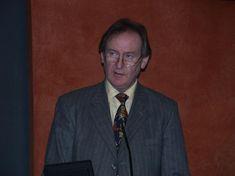
The Curry Commission has made progress in the two years since it published its report on sustainable farming. But chairman of Defra's Sustainable Farming and Food Implementation Group Sir Don Curry is concerned that moves forward are not coming quickly enough to cope with the dynamism of the marketplace.
Sir Don addressed The Curry Commission - Two Years On, a meeting held to discuss the group's impact on UK farming. He said: “...many of the building blocks have been put in place to enable delivery of the [Sustainable Farming and Food Strategy] objectives. Although much has been done, 2005 will be the real test, the key year for delivery.”
This predetermined conclusion was based on the impact of new CAP payments and the roll-out of the Entry Level Scheme. However, the comments of Sainsbury's group chief executive Sir Peter Davis clearly had an immediate impact on the meeting. When asked about the likely implications of Morrisons’s takeover of Safeway, Sir Peter predicted a lengthy, and in some cases, damaging battle for high street supremacy for the UK's leading multiple retailers.
He said: “I think we're in for a fiercely intensive period of competition for the next 12 to 18 months. There is a real danger that it will prove counter-productive.” He added that the basis of Morrisons’s submission to the competition commission - to cut prices in Safeway stores by a minimum of five per cent, and more in many stores - would pressurise Morrisons into swift action and accelerate price reductions across the marketplace.
Sainsbury's recently announced that it would be launching a price-based campaign this summer. Sir Peter admitted this was not necessarily the news his audience would wish to hear. “What we will see if we're not all careful is an escalation of moves overseas to purchase a lot more commodity products,” he said.
“There are some areas of government that don't seem too worried about a sustainable production base in this country. They can't make people deal with producers in this country if it is cheaper to buy in Thailand or Brazil.”
Sir Don responded: “What Sir Peter says is obviously a real concern. If we are going to see intense price pressure on suppliers, the challenge to the industry is to deliver the kind of structural change we talked about in the report. The big questions are how can this be implemented at a much faster pace than this industry has historically changed? And how do we communicate that if we fail, price competition will have a devastating effect on our industry?”
The size of the task, he added, is not being under-estimated. “Turning around an industry from potential meltdown to profitability, dynamism and success cannot be done overnight. We are certainly moving in the right direction, but we must maintain our enthusiasm and momentum.”
He picked out three areas in need of specific attention: the hot topic of the nation's diet and how to engage industry and government departments in providing access to healthy food; the power imbalance and lack of trust between producers and retailers, and the need to establish responsible and sustainable trading relationships; and regional implementation of the overall strategy, which he said is fundamental to its success or otherwise.
“We have a collective responsibility,” he said, “but much of that responsibility is in the hands of the big companies that spend the advertising money. You can compete as much as you like, but the side effects of that competition could be damaging our children’s health.”



